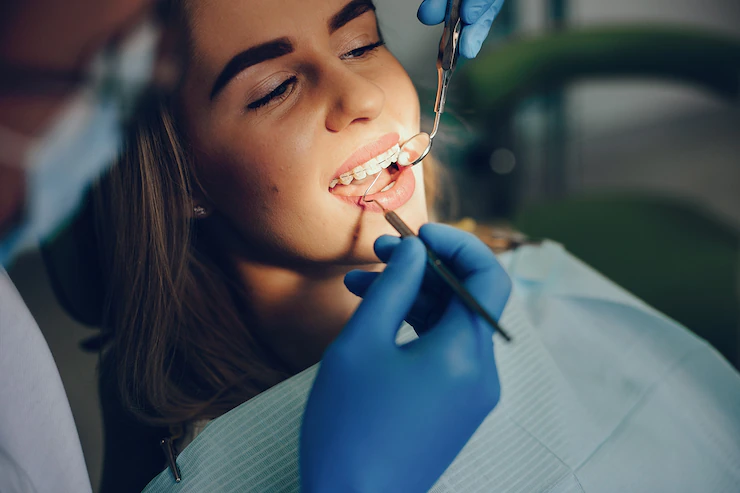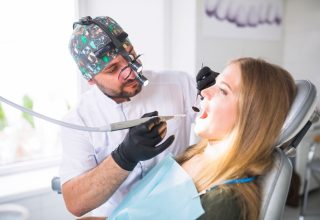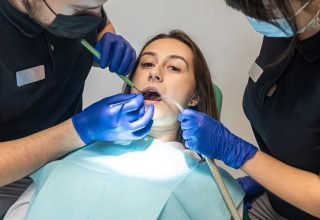Taking Care Of Your Oral Health In Your 30s
If you’re in your 30s, this is the perfect time to assess your oral health care routine. At this age, you might be having the busiest time of your life because of a job or business. It could be a hectic time for you at this moment, but just the same as your physical health, your oral health should also be considered a priority.
Regardless of how successful you’ve become, one thing is for sure, you may have taken oral health care for granted. Certainly, people should always abide by the old adage, that prevention is better than cure, especially with regard to health conditions.
With that being said, now is an excellent time to evaluate your oral health’s overall condition to avoid serious problems and costly procedures.
Now, if you’ve reached this age, take this as a sign to prioritize your oral health to prevent encountering problems that might seriously affect your busy life. Read on to realize and understand how important it is.
Common Oral Health Challenges In Your 30s

Oral health is an essential part of overall health. However, many adults are not aware of the importance and are not taking proper care of their oral health. The five most common oral health challenges in adults are:
- Dental caries
- Periodontal disease
- Gum disease
- Bad breath
- Tooth decay
Oral health challenges in adults are caused by some factors, such as stress, poor diet, lack of dental insurance, smoking, drinking, and irregular dentist check-ups.
Ways To Take Care Of Your Teeth As An Adult

Taking care of your teeth in your 30s is crucial to your oral health. While it could be more challenging than when you were young, here are some helpful tips you could carry out to improve your oral health:
1. Brush Your Teeth Twice A Day With Toothpaste
The health of your teeth depends on how often you brush and floss. If you’re not brushing and flossing twice a day, your oral health will suffer in the long run.
Toothpaste is one of the key components that help clean the teeth, and its ingredients such as fluoride, xylitol, and baking soda assists in killing the bacteria that causes cavities. That said, brushing your teeth with toothpaste significantly contributes to maintaining your overall oral health.
2. Flossing Is An Important Part Of A Good Oral Health Routine
Flossing is another crucial part of your oral care procedures. It helps remove plaque from sitting within the teeth and below the gum line. This prevents bacteria from getting into the gums, which can cause gum disease or tooth decay. Here’s some essential information you need to know about flossing:
- It removes plaques in your teeth and in places your toothbrush can’t reach.
- It removes food particles in between your teeth that can result in tooth decay and gum disease.
- It can help prevent gum problems, which have been linked to other diseases like heart disease and diabetes.
3. Use Mouthwash Before You Brush Your Teeth
Mouthwash is a great way to fight the bacteria that cause bad breath and plaque. When you use mouthwash before brushing your teeth, you get rid of the bacteria that may cause these underlying problems.
Many people use mouthwash after brushing their teeth, but this isn’t necessary. Mouthwash works best when used before brushing your teeth as it removes any food particles that may be left in the mouth after eating or drinking.
4. Eat A Diet Rich In Fruits And Vegetables
Eating a diet rich in fruits and vegetables is the best way to improve your oral health. They’re high in antioxidants, which can help fight bacteria and other harmful agents that can cause dental problems. In addition, fruits and vegetables also add moisture to the mouth, to prevent experiencing dry mouth syndrome.
5. Drink At Least 8 Cups Of Water Every Day
Our mouth is home to more than four hundred species of bacteria. These bacteria are essential for our health and help create a protective barrier around the teeth. However, there are some times when our mouth can become too dry or too acidic, leading to bad breath and tooth decay. These cases may be avoided if you continue drinking the recommended amounts of water daily.
Drinking 8 cups of water every day can help you maintain good oral health by flushing out toxins. It also helps maintain the pH balance in your body, preventing tooth decay and gum disease.
6. Avoid Smoking, Drinking Alcohol, And Chewing On Hard Candy Or Gum
Avoid smoking, drinking alcohol, and chewing on hard candy or gum. According to the American Dental Association (ADA), smoking can cause tooth discoloration, gum disease, and the risk of developing oral cancer. That’s why they recommend quitting smoking early on in life to save you from these conditions
Your dentist can refer you to a program that can help you quit smoking. Drinking alcohol in excess is also harmful because it causes dry mouth and reduces saliva flow, which helps protect your teeth from decay. If you need a pick-me-up during the day, instead of reaching for a sugary treat or soda, drink water with lemon or chew some sugarless gum.
7. Use A Tongue Scraper
Oftentimes, many people disregard taking care of the tongue, not knowing that it’s the dirtiest place in your mouth. Plaque and bacteria live on the surface of your tongue, which can lead to bad breath and an unpleasant taste in your mouth. The best way to combat this problem is to use a tongue scraper every day.
To use a tongue scraper, gently press it against the back of your tongue and move it forward. Do not press too hard, or you could damage your taste buds. After each stroke, rinse off the plaque that has collected with water. Using a tongue scraper has its share of benefits, including the following:
- It helps to reduce the risk of oral cancer
- It increases saliva production, which can help with dry mouth symptoms
- It helps to prevent halitosis (bad breath)
8. Visit The Dentist Regularly
It can be challenging to maintain good oral health with the busy schedules that we’re living in. However, it’s critical that a course of action should still be done and one of the best dental practices is to visit a dentist for regular checkups and preventive care. A dentist can help you maintain your oral health by:
- Providing advice on how to improve your oral health condition
- Educating you on the benefits of dental care
- Helping you find a dental insurance plan that is best suited for your needs
Conclusion
Oral health is an essential part of your overall health. It’s essential to take care of it, especially in your 30s because it will help you avoid serious medical problems like gum disease, tooth decay, and tooth loss that may be inevitable as you age. The key to having a healthy mouth is regular oral hygiene. This includes brushing and flossing daily and getting regular dental check-ups. Even with your busy schedules, it’s advisable to take all the tips mentioned above religiously to avoid having future problems regarding your oral health.
Read Also:
- What You Need to Know About Growing Oral Health Concerns in New Hampshire
- Oral Health in Self-Isolation During COVID-19 Pandemic
- How to Stay On top Of Your Oral Health
- Are Diabetes and Oral Health Related?



